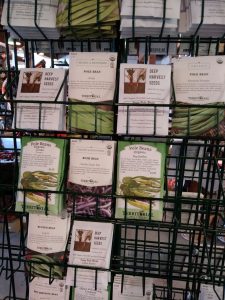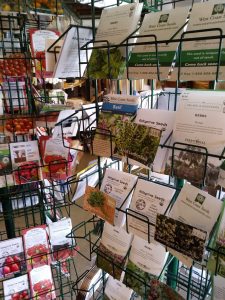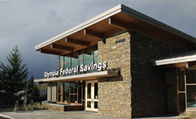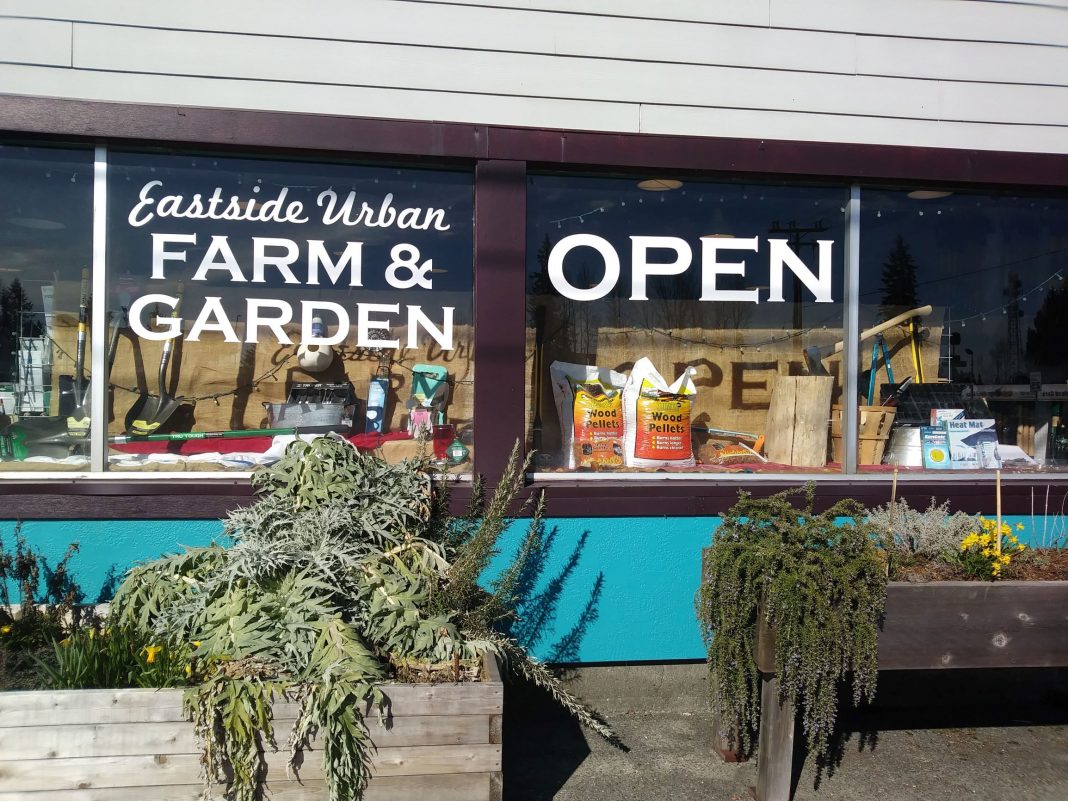Spring is in the air, or at least on the calendar. It is the season of growth and renewal. It is the time to start planting!
 As we prepare our gardens, it is important to carefully consider what we will be planting. Common questions we usually ask include: Are these seeds created for this climate? Will they get enough light and water? Is the soil too acidic? These are necessary considerations, but there are other important questions to ask as well.
As we prepare our gardens, it is important to carefully consider what we will be planting. Common questions we usually ask include: Are these seeds created for this climate? Will they get enough light and water? Is the soil too acidic? These are necessary considerations, but there are other important questions to ask as well.
Are these seeds genetically modified?
Are they patented by a large corporation?
Conversations about the dangers of genetically modified, pesticide-laden foods has become ubiquitous. According to a 2018 Pew Research Poll, nearly half of Americans believe that consuming GMO foods are bad for our health. However, few of us stop to consider where our garden seeds come from. After all, anything we grow from seed must be safe right?
Not necessarily.
As of 2018, just three corporations owned more than half of the world’s seeds. One of these is Bayer/Monsanto, purveyor of the majority of the world’s genetically modified food crops. Sold under a variety of names, the Monsanto website boasts more than 2,000 vegetable seed varieties.
This is frightening for many reasons. Beyond the concerns about eating genetically modified foods are the issues of seed sovereignty and biodiversity. Large corporations increasingly own our food supply.

A.S. Brighida deVargas, founder of Eastide Urban Farm & Garden in Olympia explains: “Most seed industry giants are focused on producing patented genetically modified seeds for use in industrial agriculture. These seeds cannot by law be saved or grown without the express permission (and fees paid to) the corporations in question. This means that it is against the law for a farmer or home gardener to save these genetically modified seeds to plant for the next season, which used to be common practice for farmers, and is the way that farmers insure crops get adapted to their area (by selecting seed to save from the healthiest plants).”
Patented seeds also have the effect of drastically reducing the biodiversity. DeVargas warns, “There is very real concern that the unintended and untested consequences of genetic contamination of crops over time will cause a real loss of genetic diversity.” Unfortunately, this is already a reality. Since 1900, more than 75 percent of plant diversity on farms has been lost. The loss of biodiversity contributes to a wide range of problems, from nutrient deficiency in the food supply to climate change.
The good news.
The great news is that we can have a positive impact on our world and our health by making smart gardening choices. Several local businesses provide opportunities to support sustainable agriculture through the sale of heirloom seeds.
Heirloom, for the purposes of this article, refers to cultivated, open-pollinated seeds deliberately chosen for specific characteristics (definition from West Coast Seeds). When propagated correctly, those characteristics will be retained from one generation to the next. Unlike patented crops, heirloom seeds can be saved and used for future plantings. They can be passed down through families or shared with friends.
In a culture where monocropping (planting large quantities of a single crop) is commonplace, planting heirloom varieties allows us to maintain nutrient quality in both the soil and the product, as well as critical biodiversity. Bonus, they taste better.
The importance of heirloom seeds cannot be overstated. As DeVargas further clarifies, “Heirloom seeds represent cultural heritage. Many heirloom seeds have been handed down for generations by our grandparents and ancestors because they grew so well, produced delicious food, and formed an important part of the culinary heritage of our many peoples. Many heirloom seeds have been specifically adapted to grow well in specific areas, plus heirloom seeds have the ability to adapt to local growing conditions if care is taken in selecting/saving the best plants/fruits to produce the best seed to save. Adaptation of open-pollinated seeds to local growing conditions equals food resiliency. It is how our ancestors survived.”

DeVargas goes on to demonstrate the needs to purchase locally sourced seeds. “Locally adapted seeds, seeds grown in a particular bioregion, have been specifically selected to produce food within the climate of that particular area, tolerating not only the local/regional disease/fungal/insect pressures, but also the varying seasonal fluctuations in precipitation, frost-dates, and micro-climates found within that area. Seeds produced overseas, or in the Midwest, for example, are not bred or selected for the same pressures and tolerances as the seeds grown and produced in Puget Sound.”
If you have ever purchased seeds or plants from a chain hardware store only to have it die a few weeks later, you understand the frustration of not considering seed origin.
Purchasing local, heirloom seeds for your garden is as easy as stepping through the doors of Eastside Urban Farm & Garden at 2326 4th Avenue E, Olympia, WA 98506. Racks of seeds immediately grab the attention of customers as they walk through the front doors, many of which are heirloom varieties. All are non-GMO and certified organic. Any questions about planting can be answered by the amazing staff. The center also offers a variety of classes on every aspect of gardening, food preservation, and more.
This year try something new in your garden. Or try several heirloom varieties of your favorite vegetable and see what gets the best results. Maybe this is the year to try saving some seeds for future planting. Whatever the choice, have fun!

















































